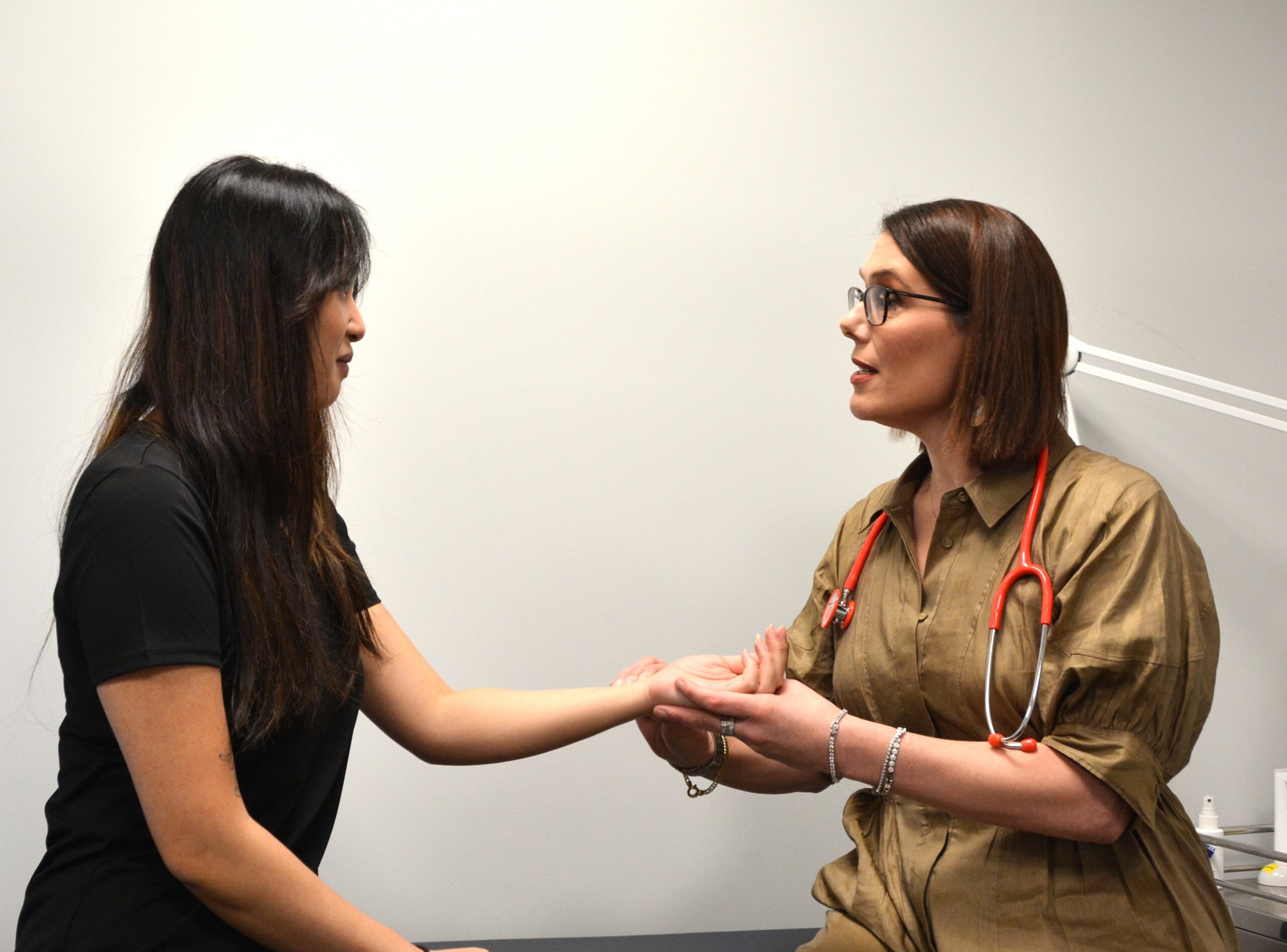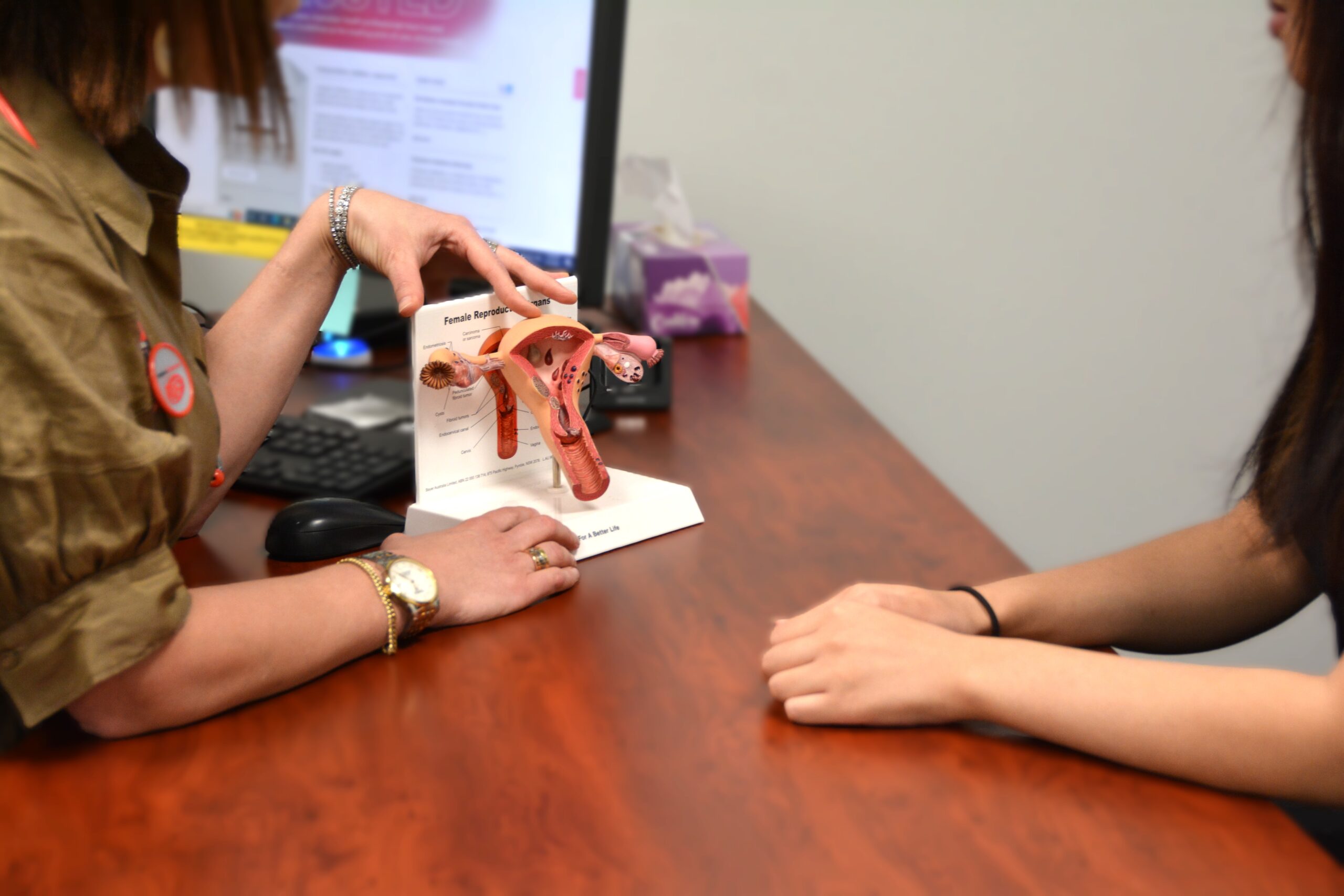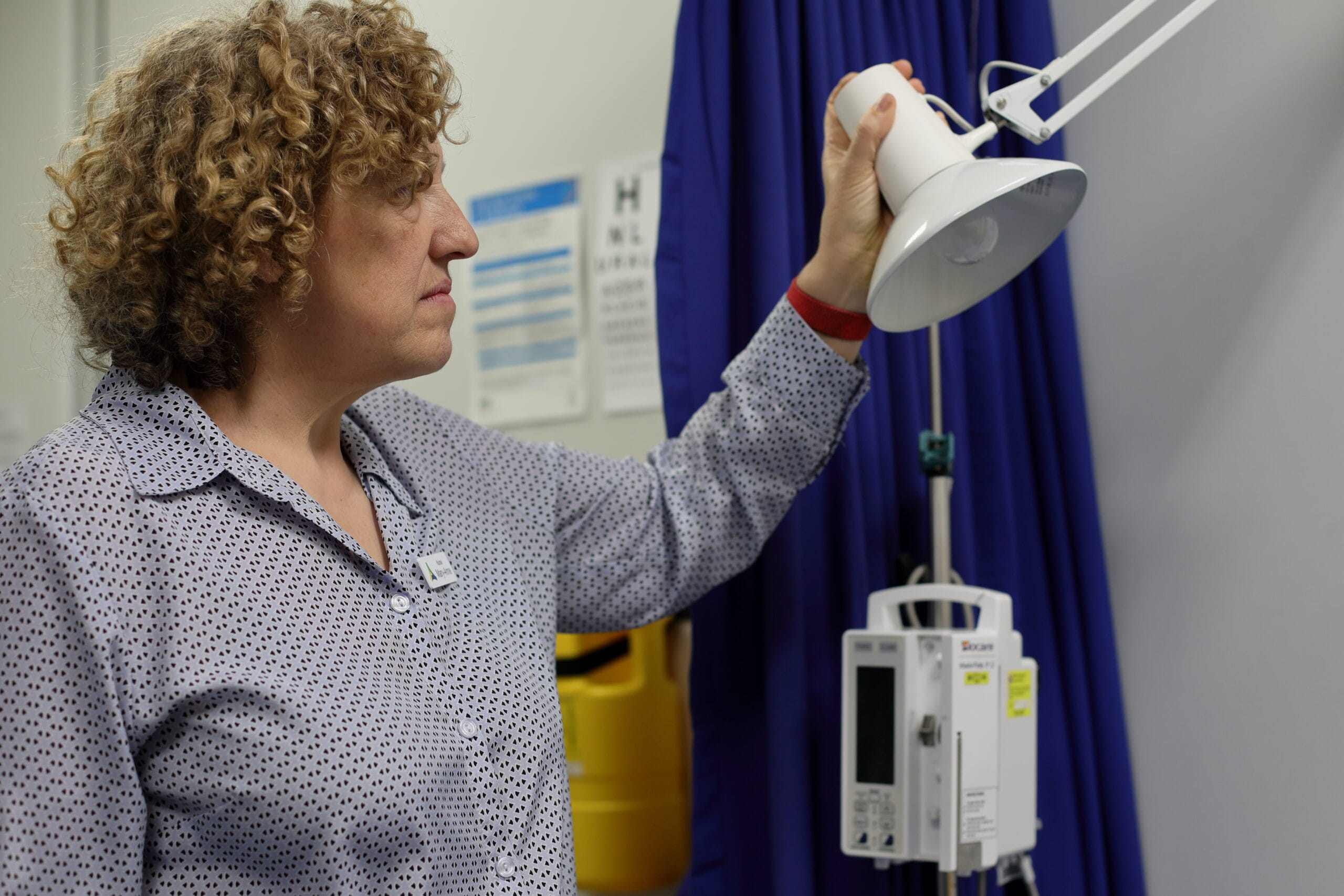Contraception
The GPs at Healthcare on Collins are here to support you in making the best choices for your health and well-being, ensuring you feel comfortable and empowered in your decisions.

Women’s Contraception GP Services
The compassionate women’s health GPs at Healthcare on Collins can prescribe contraceptive solutions to women.
Anyone who can understand the conversation and make an informed decision can discuss contraception with their GP. Generally, medical professionals suggest that individuals become capable of having this discussion autonomously starting from the age of 14+, taking into account individual circumstances on a case-by-case basis.
The GPs at Healthcare on Collins are here to support you in making the best choices for your health and well-being, ensuring you feel comfortable and empowered in your decisions.
Contraception Options Available at Healthcare on Collins
When considering contraception options, the first consideration is whether a woman can safely take oestrogen. Factors such as clotting disorders, previous unexplained clots, migraine with aura, BMI over 40, and other medical conditions may affect this. If a woman cannot safely take oestrogen, she will be offered progestogen only contraceptive methods.
Contraception options are as follows:
- Combined (oestrogen and progestogen containing) oral contraceptive pill (the most commonly used contraceptive in Australia)
- Progestogen-only pill
- Progestogen-only depot injection
- The levonorgestrel implant
- Arrange for IUD insertions with partner providers
- Birth control ring
- Emergency contraception
- Arrange referrals for tubal ligation
- Guide correct usage and success rates of barrier methods, primarily condoms
Your GP will provide information on a range of options, as the decision is ultimately yours to make. This discussion covers the pros, cons, costs, duration of action, and the PEARL index (yearly success rates) for each method.


How Effective is Each Form of Contraception?
The World Health Organisation (WHO) provides an excellent table referred to as the Method of Action & Effectiveness of Contraceptive Methods:
| Method | How it works | Effectiveness: pregnancies per 100 women per year with consistent and correct use | Effectiveness: pregnancies per 100 women per year as commonly used |
|---|---|---|---|
| Combined oral contraceptives (COCs) or “the pill” | Prevents the release of eggs from the ovaries (ovulation) | 0.3 | 7 |
| Progestogen-only pills (POPs) or “the minipill” | Thickens cervical mucous to block sperm and egg from meeting and prevents ovulation | 0.3 | 7 |
| Implants | Thickens cervical mucous to block sperm and egg from meeting and prevents ovulation | 0.1 | 0.1 |
| Progestogen-only injectables | Thickens cervical mucous to block sperm and egg from meeting and prevents ovulation | 0.2 | 4 |
| Combined contraceptive patch and combined contraceptive vaginal ring (CVR) | Prevents the release of eggs from the ovaries (ovulation) | 7 (for vaginal ring) | |
| Intrauterine device (IUD): copper containing | Copper component damages sperm and prevents it from meeting the egg | 0.6 | 0.8 |
| Intrauterine device (IUD) levonorgestrel | Thickens cervical mucous to block sperm and egg from meeting | 0.5 | 0.7 |
| Male condoms | Forms a barrier to prevent sperm and egg from meeting | 2 | 13 |
| Male sterilization (Vasectomy) | Keeps sperm out of ejaculated semen | 0.1 | 0.15 |
| Female sterilization (tubal ligation) | Eggs are blocked from meeting sperm | 0.5 | 0.5 |
| Lactational amenorrhea method (LAM) | Prevents the release of eggs from the ovaries (ovulation) | 0.9 (in six months) | 2 (in six months) |
| Standard Days Method or SDM | Prevents pregnancy by avoiding unprotected vaginal sex during most fertile days. | 5 | 12 |
| Emergency contraception pills (ulipristal acetate 30 mg or levonorgestrel 1.5 mg) | Prevents or delays the release of eggs from the ovaries. Pills taken to prevent pregnancy up to 5 days after unprotected sex | < 1 for ulipristal acetate ECPs, for progestin-only ECPs, for combined estrogen and progestin ECPs | |
| Withdrawal (coitus interruptus) | Tries to keep sperm out of the woman’s body, preventing fertilization | 4 | 20 |
Your GP at Healthcare on Collins is Ready to Help
It is imperative that women see a GP at least once a year to discuss their contraceptive situation.
- Your GP provides ongoing management of blood pressure, oestrogen safety advice and ensure the current contraception method is appropriate
- Your GP provides support with perimenopause, STI screening, cervical checks, breast checks and more
- The women’s health GPs are highly trained, caring and compassionate
- Your privacy, consent and comfort are of the utmost importance
Book a personalised appointment at Healthcare on Collins to create your contraception strategy.
Call Us
(03) 9650 4284

FAQ
Can there be symptoms associated with taking the pill?
Yes, side effects associated with the combined oral contraceptive pill can range from mild to severe, however, most women experience none at all.
The list includes symptoms like changes in mood, reduction in libido, changes in breast size/breast tenderness, headaches, acne, and venous thromboembolism (blood clotting), which is typically the most concerning symptom.
For women with no other clotting risk factors, the combined oral contraceptive doubles the risk of clotting. Without any risk factors, a woman’s chances of clotting are three to four in 10,000 women-years, and this increases to approximately eight in 10,000 women-years.
In practical terms, this means that if 10,000 women take the pill for one year, eight of them may experience a clot, compared to four who might have had one without taking the pill.
How do various forms of contraception affect a woman’s period?
Combined Oral Contraceptive Pill: Generally makes periods lighter, shorter in duration, and very predictable.
Progestogen-Only Pill: Generally makes periods lighter but may not be as predictable as with the combined oral contraceptive pill.
IUD with Progestogen: The majority of women experience significantly reduced periods in terms of flow and frequency, with some women stopping bleeding altogether.
IUD with Copper: Has a 25% chance of making bleeding heavier and more uncomfortable.
Implanon: Around 20% of women will stop bleeding. 60% of women will have regular bleeds resembling their former periods. 20% of women will experience random and ad hoc bleeding, which may require management to establish predictable and controlled bleeding patterns.
Does contraception protect against Sexually Transmitted Infections?
The only thing that contraception protects against is unwanted pregnancy. Advice about protection against STIs remains valid for any person using contraception.
Where Healthcare On Collins uses the term woman, we are including women, transgender men, and all people who were born with female reproductive organs.
